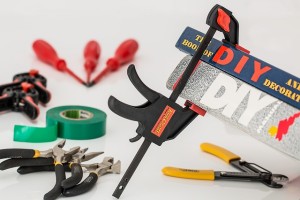Plagiarism, collusion and other forms of academic malpractice
These topics form an important part of the first stage of the Writing and Referencing skills modules in Y1 & 2 but general guidelines and advice are given hereunder.
Plagiarism is a serious offence – it is treated as seriously as cheating in exams.
- As a student, you are expected to cooperate in the learning process throughout your programme of study by completing assignments of various kinds that are the product of your own study or research. Coursework, dissertations and essays submitted for assessment must be your own work, unless in the case of group projects a joint effort is expected and this has been indicated by the Unit Coordinator. For most students this does not present a problem, but occasionally, whether unwittingly or otherwise, a student may commit what is known as plagiarism, or some other form of academic malpractice, when carrying out an assignment. This may come about because students have been used to different conventions in their prior educational experience or through general ignorance of what is expected of them or of what constitutes plagiarism.
- This guidance is designed to help you understand what we regard as academic malpractice and hence to help you to avoid committing it. You should read it carefully, because academic malpractice is regarded as a serious offence and students found to have committed it will be penalized. At the very least a mark of only 30% would be awarded for the piece of work in question, but it could be worse; you could be awarded zero (with or without loss of credits), fail the whole unit, be demoted to a lower class of degree, or be excluded from the programme, depending on the severity of the case.
Academic malpractice includes plagiarism, collusion, fabrication or falsification of results and anything else intended by those committing it to achieve credit that they do not properly deserve. You will be given exercises and guidance on plagiarism/academic malpractice in tutorials and if you are unsure about any aspect of this you should ask your Personal Advisor for advice. In addition, further guidance is available on the intranet (see ‘Plagiarism – Resources for avoiding Plagiarism’ which includes helpful exercises and explanations relating to plagiarism and referencing on the web. There is also information in My Learning Essentials. It is well worth visiting these sites in your spare time to ensure that you fully understand.
All students are required to confirm that they have read and agree to the University’s declaration on Academic Malpractice as part of the online registration process.
Further information on Academic Malpractice and how to avoid it can be found at www.regulations.manchester.ac.uk/academic.
The University uses electronic systems for the purposes of detecting plagiarism and other forms of academic malpractice and for marking. Such systems include TurnitinUK, the plagiarism detection service used by the University.
As part of the formative and/or summative assessment process, you may be asked to submit electronic versions of your work to TurnitinUK and/or other electronic systems used by the University (this requirement may be in addition to a requirement to submit a paper copy of your work). If you are asked to do this, you must do so within the required timescales.
The School also reserves the right to submit work handed in by you for formative or summative assessment to TurnitinUK and/or other electronic systems used by the University.
Please note that when work is submitted to the relevant electronic systems, it may be copied and then stored in a database to allow appropriate checks to be made.
You will be given an opportunity within the tutorials to submit a draft essay through this system, and it is very much in your best interests to do this so that you understand how it works.
Please see the document Guidance to students on plagiarism and other forms of academic malpractice.
